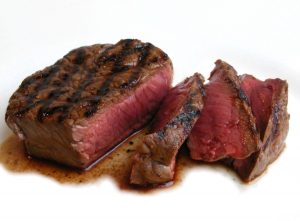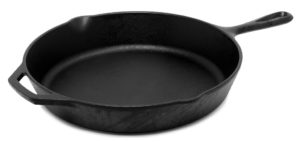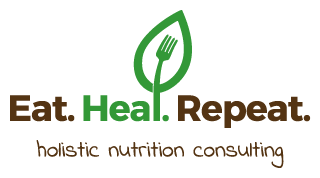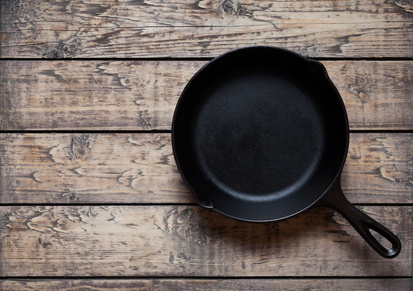For much of my life, I was 'critically anemic', a.k.a. severely deficient in iron. Back then, I thought this was something I was dealt in life, like some people were 'dealt' with high blood pressure or diabetes. For a while, I took daily walnut-size capsules of ferrous sulfate (at least that's what they felt like), without any real results. I was a sickly child and teenager, always tired, and seriously 'un-spunky' - what I called 'stoic'. Intermittently, my iron levels got better or worse, seemingly magically, until they tanked a couple of years ago, when I contracted a gastrointestinal infection. Oh well.
Fast forward to my present-day knowledge: There is a root cause to any imbalance or deficiency, and mine may just have been impaired absorption: I was not taking care of my gut. Therefore, it was not able to do its job of getting enough iron from what I was eating, or supplementing.
I hope you are not following in my footsteps, with mysteriously fluctuating iron and ferritin levels, or worse, inexplicable lethargy. Here's some information that might help you get a handle on your iron stores. Be sure to work with a licensed health care provider to get reliable blood levels of both iron and ferritin (the stored form of iron), and consider working with a nutrition pro to optimize them naturally:
What does iron do, and why is it important?
Iron is a mineral that our bodies need for many functions. For example, it's a component of a number of proteins, including enzymes and hemoglobin (the protein part of your red blood cells, which gets oxygen from the lungs into the rest of your body, and carbon dioxide back into the lungs). Its most important role is in transporting and releasing oxygen to tissues throughout the body for metabolism. Iron also supports your immune function and helps build collagen.
How much iron do I need?
You can typically get sufficient iron from your diet. Be aware that low stomach acid (e.g. from ageing or antacid use), an impaired digestive system, a strict vegetarian diet, pregnancy and blood loss (internal or external, but most commonly in the form of menstruation) can lower your iron levels significantly, and may mean an increased need for supplemental and/or dietary iron. Be sure to have your iron/hemoglobin/ferritin evaluated first if you consider supplementing, and work with a qualified health care professional!
Signs of deficiency: You may first experience fatigue, increased blood sugar, or recurrent infections. A severe deficiency manifests as significantly decreased energy levels, impaired immune function, developmental delay (especially in children), cognitive impairment, and even adverse pregnancy outcomes in anemic mothers-to-be.
Too much of a good thing: Excess iron is stored in our bodies. Women in their child-bearing ages have a natural mechanism for iron detoxification (unless they suffer from an illness called hemochromatosis). However, men in particular need to be careful not to over-supplement iron, since any excess iron might get stored in soft tissue and cause increased free radical stress, which has been linked to cancer and heart disease.
Where should my iron come from?
Foods: Heme iron (from animal sources) is absorbed more easily, while non-heme iron (from plant sources) depends on several factors (such as healthy stomach lining) that your body and diet may or may not provide. Good heme-iron sources are liver and other lean meats, seafood and eggs. Be sure to get the highest quality animal products you can afford: free-range or pastured, grass-fed, and free of any hormones or antibiotics. Recommended non-heme sources are kelp, brewer’s yeast, blackstrap molasses and nuts and seeds.

Supplements: Ferrous iron (as ferrous gluconate, sulfate or citrate) is more bioavailable than ferric iron in dietary supplements. Do not take calcium or multi-mineral supplements together with the iron. Do look for a supplement that also contains vitamin C – it aids the absorption significantly. Vitamin C is also a mild laxative, so it makes sense to combine it with iron, since the latter may cause constipation. Consult with your physician if you are on medications for Parkinson’s disease, antibiotics, Minocycline, Penicillamine, Risedronate, Stanozolol, Sulfasalazine or Warfarin, as supplemental iron may interfere with the absorption of these drugs.
Other ideas for increasing your iron intake: Repair your gut lining and maintain adequate stomach acid levels. Use cast iron cookware. Consume iron-rich foods with foods rich in vitamin C (e.g. citrus fruit or tomatoes) and away from calcium-rich foods (e.g. dairy). Consume less phytates (plant chemicals found in legumes, rice and grains, that hinder mineral absorption).

References available upon request

